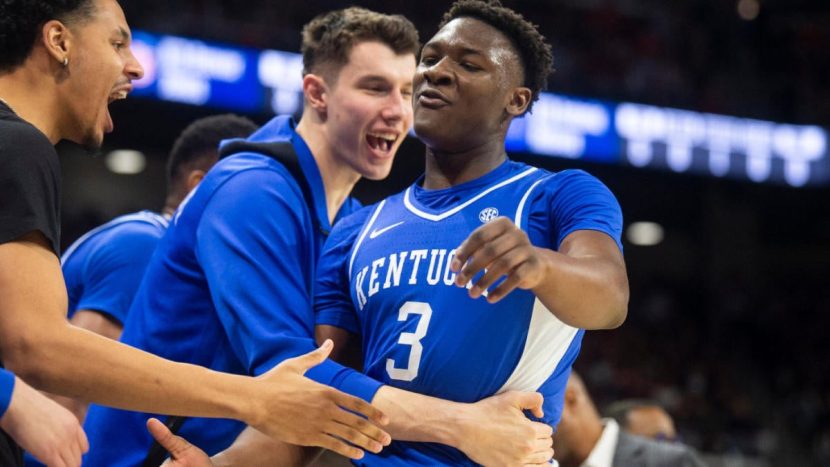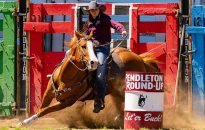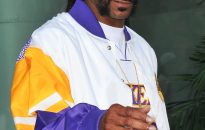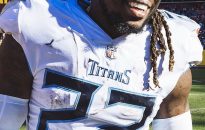Employment agreements would also clear up the “channel conflict” that happens when a school has a marketing deal with, say, Nike shoes, but an individual athlete has one with Puma or New Balance. George, a former Heisman Trophy winner at Ohio State, pointed to OSU’s decision to begin selling alcohol at games a couple of […]
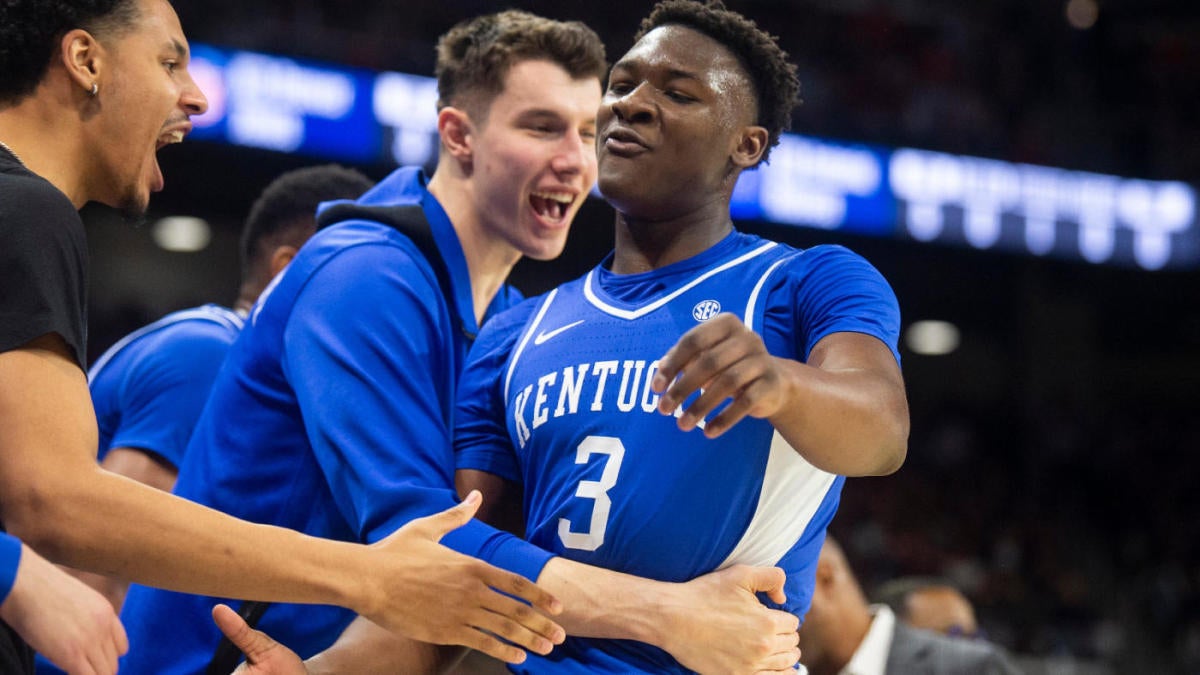

Employment agreements would also clear up the “channel conflict” that happens when a school has a marketing deal with, say, Nike shoes, but an individual athlete has one with Puma or New Balance.
George, a former Heisman Trophy winner at Ohio State, pointed to OSU’s decision to begin selling alcohol at games a couple of years ago, and its shift from grass to artificial surf in the stadium, so more non-football events can be scheduled year-round.
To do that, Bloom wants to build up international leagues where athletes in X Games sports such as snowboarding or BMX compete regularly in a structured process leading up to the championships themselves.
For coaches, the portal is the Wild West, allowing programs to be built, or devastated, seemingly overnight. Some players are leaving six months after arriving on campus. The resulting turnover has driven some frustrated and overwhelmed coaches out of the game, and created the new position of general manager to oversee recruiting and re-recruiting athletes on a year-round basis.
After his athletic career ended, both on the field and the slopes, Bloom founded an enterprise marketing software company, and built it for more than a decade before selling in 2021 to a private equity firm. Bloom also founded and remains board chairman of the non-profit Wish of a Lifetime, now operated alongside AARP, that finances special experiences for people in their 80s, 90s and 100s.
But this was two decades ago, back when the NCAA ruled college sports with an imperious, often arbitrarily iron hand, which reached out and interrupted Bloom’s budding football career.
The first thing to fix in the current chaos is to make commitments more long-lasting than they’ve proven since the transfer portal opened. Bloom suggests recruits sign an employment contract for four years, but acknowledges that even two-year contracts guaranteeing deliverables from both the athlete and the school would stabilize the portal, where many hundreds of athletes turn at the end of every football and basketball season trying to find another program they can join.
Tennessee State Coach Eddie George said on CNBC that schools should focus on how to maximize revenues, so they can take care of their athletes at a competitive level with the market as a whole. That means ensuring alignment between a school’s president, board of trustees, athletic director and coaches, even on subtle changes that can make a difference.
That hasn’t kept the NCAA from trying to use the courts to rescue its ancien régime, so far unsuccessfully.
Once upon a time, Jeremy Bloom was a World Cup champion and Olympic skier who somehow also played wide receiver for the University of Colorado football team. On the side, he was a model for Tommy Hilfiger jeans.
Further consolidation is likely, perhaps to two mega-conferences, with “instead of 123 schools, probably 50 that really matter,” Bloom said. “And those 50 schools will break off from the institutional model and create more of what looks like a professional league that’s still associated with schools.”
He’s spending a lot of time these days thinking about how to create and structure leagues. Two weeks ago, he was named CEO of the X Games, now spun out of founder ESPN and majority-owned by MSP Sports Capital, a private-equity firm with stakes in the NBA’s Phoenix Suns, the McLaren Formula 1 racing team, and a batch of European soccer franchises.
‘You’re using those clips, hopefully in real time, to move people to the broadcast instead of just consuming the highlights” online, Bloom said. “There are so many viral moments across our all of our sports that will bring folks to be interested in what we’re doing. And I would also submit, I think we have some of the most marketable athletes in the world. And I think we’re under-marketing them.”
The NCAA could borrow ideas from other organizations such as the International Olympic Committee (he served seven years on the board of U.S. Ski and Snowboard, the national governing body for those sports within the Olympic structure). Over several decades, the IOC had to move from a strict (and ridiculously classist) interpretation of “amateurism” to a stance that allows endorsements and other support to help finance competing athletes in many sports that never will make them wealthy. As Bloom points out, organizations elsewhere have figured out some of the challenges now tripping up the NCAA, which needs to catch up.
Since then, a long string of court decisions have built on that finding, ultimately defanging the NCAA and turning college sports upside down on many fronts while allowing athletes to make money, and transfer freely to another program. Next year, college sports will become even more like a professional endeavor, as schools will begin directly paying players a salary (now, semi-independent booster collectives funnel endorsement money to prized athletes at each school).
“Ultimately, I’m very happy that student athletes own their own name, image and likeness, which it was always so weird to me” that they didn’t, Bloom said. “I was like, ‘Wait, I’m going to play college football, but I’m going to give up my own name, my own image and my likeness?’ That never really went over well with me.”
“I think there needs to be some common-sense thinking around if this is a big university sponsor and it’s United Airlines, it makes good logical sense that student athletes can’t try to get sponsored by Delta or whatever,” Bloom said. “There’s some separation between the two, because you don’t want to cannibalize the university’s ability to sign these big deals, and you obviously want to give student athletes as much opportunity as you can, but it’s not like schools have endless amounts of money. If you’re going to start paying kids on contract, you don’t want to take away the revenue opportunities for these schools.”
He says former NCAA Executive Director Mark Emmert committed “probably the worst sort of corporate CEO performance in history, at least in sports, because look at the ramifications” of inaction under his 13-year stint at the top, ending in 2023.
But changing the portal faces notable complications, not least the basic civil-rights issue of allowing (frequently Black) athletes as much agency and control over their lives as their coaches, who regularly leave for another program when a better opportunity beckons.
Those numbers, at least for SEC and Big 10 schools such as OSU, will only grow alongside the vast TV revenue shares those two powerhouse conferences rake in. That forces other schools to try to keep up.
“They’re still trying to sue in federal court to return to amateurism and talk about a Hail Mary again,” Bloom said. “Instead of being progressive and saying, ‘Okay, times have changed, and let’s embrace this, and let’s put together some plans for the future that make sense,’ they’re literally still in court and (meeting with) federal policy makers to try to go back to the future.”
“I think the biggest disappointing thing was the NCAA had all the time, energy and money to spend thinking about, ‘Okay, if this ever does change, meaning amateurism goes away, and we’re in a place (like) where (we are) today, what are some common-sense things that we would do if that were to happen,” Bloom said. “And they didn’t spend any time on that. In fact, they spent every hour, every penny that they had just fighting it, hiring armies of lawyers to just preserve amateurism. And so when the Supreme Court voted unanimously in the Austin case, and everything came crumbling down, they had no plan.”
All of that has shaped Bloom’s own thoughts on young athletes, sports, marketing, and endorsements, as has his role as a TV commentator for several networks on college and Olympic sports, his marketing and entrepreneurial experience, and service on the board of U.S. Skiing and Snowboarding.
Equally important is having programming about the leagues and games available where the sports’ fans are. X Games just announced a deal with Roku, alongside its existing ESPN deal, and will continue to build out its presence on social-media outlets such as YouTube, Snapchat, Instagram, X and TikTok.
In a minor coincidence, Bloom’s own former team, the Colorado Buffaloes, is a poster child for college sports’ new possibilities. Brash head football coach Deion Sanders wielded the many systemic changes and the star wattage of his own two sons and newly crowned Heisman Trophy winner Travis Hunter to radically transform a miserably bad program into a bowl contender in just two years.
Bloom sued, fending off the NCAA long enough to play two seasons with the Buffs before running out of legal options in 2004, and walking away from college football (the NFL’s Eagles would later draft him).
That in turn leads to “player associations…collective bargaining agreements, and all the things, but that would just clear up a lot of the confusion with these boosters who are just creating collectives, whatever that means. All that stuff gets smoothed out if you just professionalize it,” Bloom said.
He readily agrees the current situation is chaotic, with the NCAA unable to cobble support for a legally sustainable new regulatory structure, and Congress too distracted with challenges like running the country to step in. That said, Bloom blames the NCAA for the mess it now haphazardly presides over.
“I competed in my first Olympics before I ever went to college, and ended that year as the No. 1-ranked skier in the world,” said Bloom (no relation, as best we could determine). “Really, for the first time in my life, I had the corporate-endorsement opportunities to pay for what is a really expensive sport, to travel the world.”
All of this is happening at a time when there’s more money than ever in college sports, with the possibility that private equity will invest further in some university programs in exchange for a piece of revenues.








